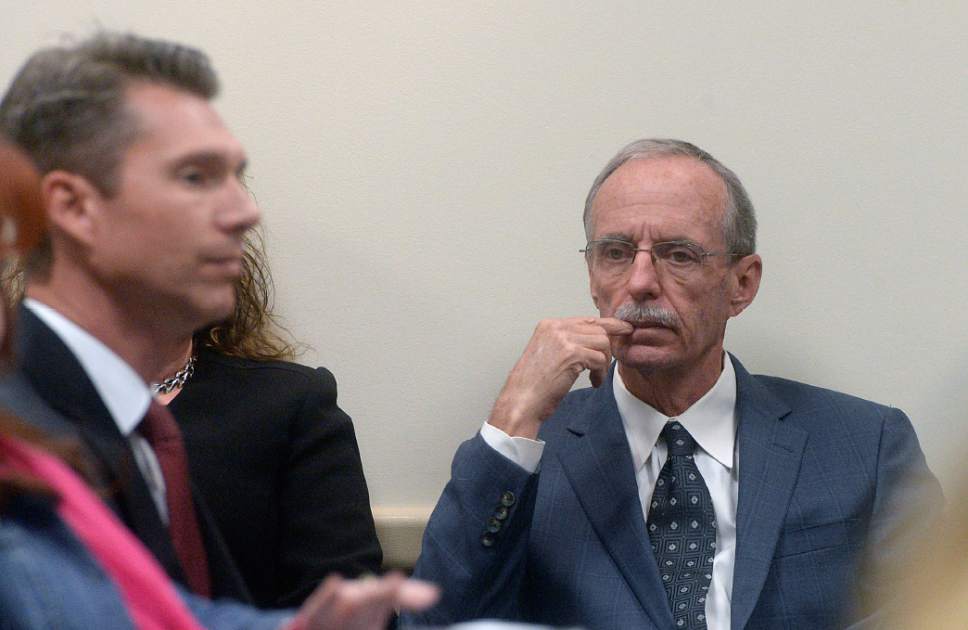This is an archived article that was published on sltrib.com in 2017, and information in the article may be outdated. It is provided only for personal research purposes and may not be reprinted.
It appears that the Salt Lake County Recorder Gary Ott saga is coming to an end. A judge has signed a settlement agreement between Gary Ott's family, who have guardianship of Ott due to his apparent mental incapacitation, and Salt Lake County. The agreement facilitates Ott's resignation as county recorder as of August 1 in return for $35,000, roughly equal to 12 weeks' pay.
In addition, the Salt Lake County Republican Party announced that it is investigating Ott's deputy, Julie Dole, for her role in possibly covering up Ott's mental decline as she continued to run the office even after Ott was unable to.
Salt Lake County Mayor Ben McAdams told reporters he wanted to eliminate the recorder position altogether, and merge it with the county surveyor's office. McAdams points to the fact that the office has been functioning well, even despite Ott's disabilities, and therefore doesn't need a separate executive officer. McAdams says a consolidation could save taxpayers money; Ott and Dole's annual compensation are both around $190,000 each.
It is important for a county auditor to be independent from the executive or legislative bodies and directly accountable to the voters, and an elected auditor is therefore preferable. But the offices of recorder, assessor and surveyor don't function under the same government watchdog concerns, and don't need the same level of accountability to voters. With completely separate offices and staff, the separate positions are duplicative and unnecessary.
Utah law requires that voters elect the county recorder. But the statute also lays out clear authority for consolidating offices of county officers, including recorder, surveyor and assessor. When such offices are consolidated, "only one person shall be elected to fill the united and consolidated offices."
Few would argue that surveying property, assessing taxes and recording property transactions are not important government functions. But they aren't complicated enough to demand that each have its own infrastructure, including a highly paid, elected executive and deputy. Especially where software can perform the function of much of the office's purpose, it makes sense to streamline the services into one office and thereby save taxpayers dollars.
If we're going to elect anyone let's elect the chair of the Utah Transit Authority. That position affects the daily lives and well-being of more Utahns than the organization of property records or the collection of property taxes. A little voter accountability may get the UTA back on track.
Let's skim the fat off government services so that public servants can effectively serve the public, and not the other way around.



